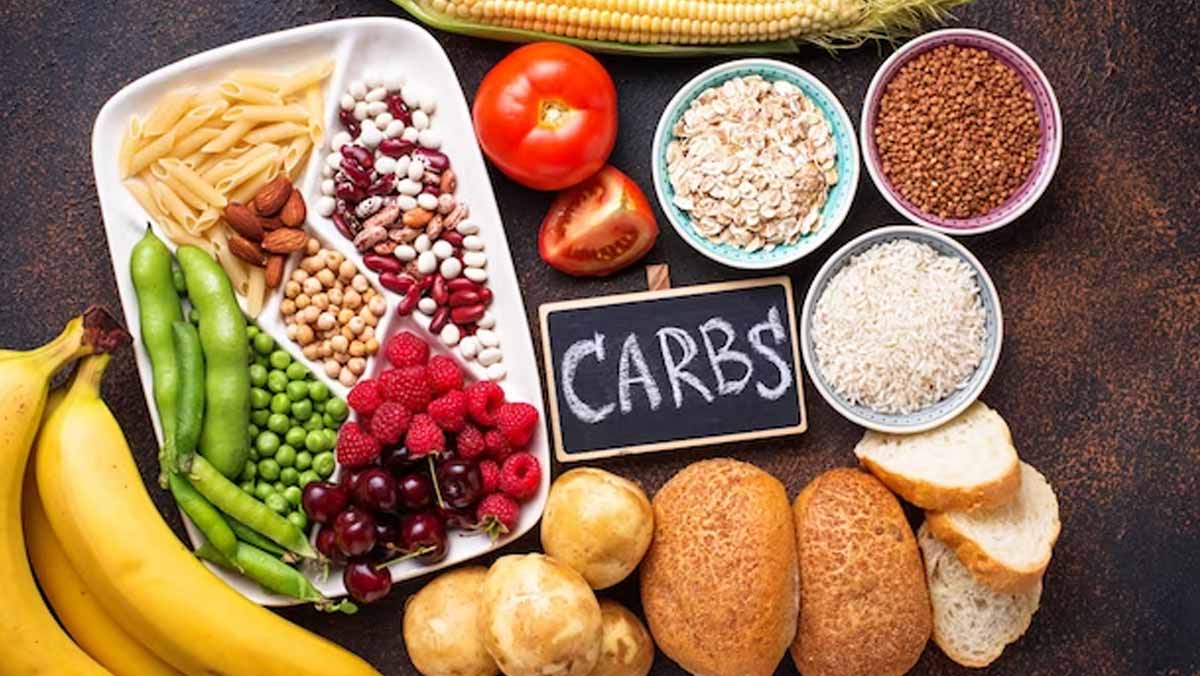
Diabetes is a common chronic medical condition characterised by high blood sugar levels, affecting 101 million people in India. It is either due to insufficient insulin production (Type 1) or the body's inability to effectively use insulin (Type 2). One of the key components of managing diabetes is taking care of your diet, which also includes monitoring your carb intake. We spoke to Dr Aditya G Hegde, Consultant - Diabetes and Endocrinology, Manipal Hospital Old Airport Road, who explained the carbohydrate intake for people with diabetes.
Table of Content:-

“Type 1 diabetes is an autoimmune condition where the immune system attacks and destroys insulin-producing cells in the pancreas, requiring lifelong insulin therapy. In contrast, Type 2 diabetes is characterised by insulin resistance and impaired insulin production, often linked to lifestyle factors, highlighted Dr Hegde. According to the Indian Journal of Ophthalmology projections, diabetes will be the cause of mortality for over 592 million people worldwide by 2035.
Management of Diabetes

An individualised approach is often considered best for diabetes management when it comes to carbohydrate intake.
The American Diabetes Association (ADA) earlier recommended that people with diabetes should get around 45% of their calories from carbs. But, now the ADA promotes an individualised approach wherein your ideal carb intake should consider your dietary preferences and metabolic goals. It is important to set realistic goals that you can maintain in the long term while you feel the best.
Also Read: Addressing India's DIABETES DILEMMA Never Too Early To Test But May Be Too Late To Treat
Calorie Intake Recommended For Diabetics
Dr Hegde listed the calorie intake for people with diabetes:
- 1800 - 2000 kcals/day
- Low-calorie diets < 1200 kcals/day
- Very low-calorie diets < 800 kcals/day. This may lead to remission of diabetes in some cases.
“A typical Indian diet provides around 2,200 calories per day, with 50% of them coming from carbs. This equals to consuming 275 grams of carbohydrates per day. To achieve blood sugar goals, we may need to restrict carb intake to less than 10, 15, or 25 grams per meal based on the calorie intake”, informed Dr Hegde. To do so, consider taking less simple carbohydrates and more complex carbohydrates.
- Low-carb diet: Many low-carb diets restrict carbs to 50–100 grams, or about 10–20% of calories, per day.
- Moderate carb diet: A more moderate carb diet may provide 130–220 grams of carbs per day, or 26–44% of calories in a 2,000-calorie diet.
Examples of simple carbohydrates include raw sugar, brown sugar, corn syrup, high-fructose corn syrup, glucose, fructose, sucrose, and fruit juice concentrate. Whole grains/complex carbohydrates include brown rice, barley, buckwheat, bulgur wheat, oats, wild rice, and spelt (dinkel wheat or hulled wheat). Also, Avoid refined grains, white flour, degermed cornmeal, white bread, and white rice.
Balanced Meal For Diabetics

Dr Hegde listed the requirements for a balanced meal as follows:
- 45-55% percent derived from carbohydrates
- 15-25% derived from protein
- 10% from fats, around 7-10% including MUFA (Monounsaturated Fatty Acid) and PUFA (Polyunsaturated Fatty Acid)
“A severely restricted diet consists of carbohydrate intake of less than 50 grams per day. It is considered to provide the best results, reducing symptoms of diabetes and even eliminating the need for insulin or diabetes medication in some cases. This diet allows intake of only 9-10% of total daily calories on a 2,000-2,200 calorie diet”, added Dr Hegde.
Right Amount of Carbs to Eat
Most adults with diabetes are recommended to take about 45–60 grams of carbs per meal and 15–30 grams of carbs per snack.
Dr Hegde provided a list of foods containing approximately 15 grams of carbohydrates, such as:
- ⅓ cup of pasta or rice
- ½ cup of oatmeal
- ½ cup of fruit juice
- ½ cup of beans
- ⅔ cup of light yoghurt
- 1 cup of low-fat milk
- 1 slice of bread
- 2 rice cakes
- 3 cups of raw vegetables
- Half potato or a similar amount of another starchy vegetable
[Disclaimer: This article contains information provided by a registered healthcare professional and is for informational purposes only. Remember to follow a sincere approach and take your diabetologist's recommendations to easily manage diabetes and lead a healthy life.]
Also watch this video
How we keep this article up to date:
We work with experts and keep a close eye on the latest in health and wellness. Whenever there is a new research or helpful information, we update our articles with accurate and useful advice.
Current Version